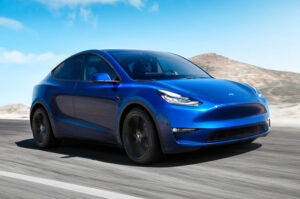Common Challenges Of Electric Car Ownership In The UK
Common Challenges Of Electric Car Ownership In The UK And How To Overcome Them

Electric cars have been experiencing a surge in popularity in the UK as individuals and governments recognize the need to reduce carbon emissions. As more people embrace Electric Vehicles (EVs), addressing the common electric car problems UK becomes essential to ensure a smooth and successful transition.
This popularity can be attributed to various factors, including advancements in EV technology, increasing environmental awareness, and government incentives to promote cleaner transportation.
The number of electric cars in the UK has been steadily rising, and this trend is expected to continue as more people choose to switch from conventional gasoline-powered vehicles.
There are many advantages of electric cars, such as zero tailpipe emissions and lower operating costs, but several challenges must be addressed. These challenges include limited charging infrastructure, the impact of cold weather on battery performance, misconceptions about electric cars, and the cost of ownership.
Addressing these challenges is crucial to ensuring a positive ownership experience for electric car owners and encouraging wider adoption.
Limited Charging Infrastructure
Limited charging infrastructure in the UK remains a significant challenge for the widespread adoption of electric vehicles (EVs).
Source:freepik
(https://www.freepik.com/free-photo/electric-car-charging-station_14371079.htm#query=electric%20cars&position=2&from_view=search&track=ais )
According to data from Zap-Map, there were 49,882 electric vehicle charging stations across the UK as of September 2023. Although this represents a significant increase, the demand still outpaces supply.
Easy access to charging points is crucial as it alleviates range anxiety and encourages EV ownership.
Solution
The government has initiated various initiatives to expand the charging network to address this issue. Home charging solutions, such as installing dedicated chargers, also provide a convenient option for EV owners.
Another solution is destination charging, where charging points are made available at popular locations like shopping centres and hotels. These efforts aim to enhance accessibility and encourage wider use of electric vehicles in the UK.
Cold Weather Affecting Battery Performance
Cold weather can significantly impact the performance of electric vehicle (EV) batteries. In freezing temperatures, the chemical reactions within the battery slow down, reducing its capacity and overall range.
Additionally, the heating systems in EVs consume extra energy, reducing the available driving power.
Solution
There are several solutions and tips for cold weather conditions to mitigate these issues. Pre-conditioning the car by remotely heating it while still connected to a charger can help warm up the battery before driving.
Battery thermal management systems are also crucial for optimal performance in extreme temperatures. Moreover, winter-specific tires with improved grip and traction can enhance safety and efficiency when driving in snowy or icy conditions.
Common Myths Associated With Electric Cars In The UK
Electric cars in the UK are often subject to common misconceptions, which can hinder their widespread adoption. One prevalent myth is that electric vehicles have a limited range compared to petrol or diesel cars.
However, with advancements in battery technology, many electric cars now offer ranges comparable to traditional combustion engine vehicles. Another misconception is the need for charging infrastructure. While charging infrastructure is expanding, thousands of charging points are already nationwide.
Lastly, concerns about the environmental impact of manufacturing batteries often arise. It’s important to note that while battery production has an environmental impact, the overall lifecycle emissions of electric vehicles are significantly lower than conventional vehicles.
Addressing these myths with factual information can help dispel misconceptions and encourage the transition to electric cars in the UK.
Government Incentives and Policies
Government incentives and policies play a crucial role in promoting the adoption of electric cars. Many states and countries, including the UK, have implemented various measures to incentivise the purchase of electric vehicles (EVs). These incentives often include financial benefits such as grants, tax credits, and rebates.
Government support reduces the upfront cost of EVs and encourages the development of charging infrastructure. Looking towards the future, the UK government has expressed its commitment to further supporting electric car adoption.
Initiatives like the Clean Air Zones and the ban on new petrol and diesel cars by 2030 demonstrate the government’s dedication to transitioning to cleaner transportation options.
Cost Of Ownership
When considering the cost of ownership, electric cars often prove to be more cost-effective than traditional vehicles. While the initial purchase price of electric cars may be higher, they offer significant long-term savings. Electric cars generally have reduced maintenance costs with lower maintenance requirements and fewer moving parts.
Additionally, the running costs of electric cars are typically lower due to the lower cost of electricity compared to gasoline or diesel. Over the long term, these savings can result in a positive return on investment for electric car owners, making them a financially viable choice.
Environmental Benefits
There are many pros and cons of electric cars on the environment, but they mainly offer significant environmental benefits compared to traditional vehicles.
By running on electricity instead of fossil fuels, electric cars produce zero tailpipe emissions, reducing air pollution and greenhouse gas emissions contributing to climate change.
Adopting electric cars is vital in the UK’s commitment to clean energy and achieving its climate goals. They are a crucial component of transitioning to a more sustainable transportation system and reducing the overall environmental impact of the automotive industry.
The Final Word
While electric car ownership in the UK comes with challenges, including high initial purchase prices and charging infrastructure limitations, staying informed and addressing these obstacles is essential.
The government incentives and policies promoting electric car adoption, long-term cost savings, and benefits of electric vehicles make them a viable and sustainable alternative.
As the UK commits to clean energy and reducing emissions, electric cars play a vital role in achieving these goals. By considering electric cars as a transportation option, individuals can contribute to a greener future and embrace the benefits of this evolving technology.